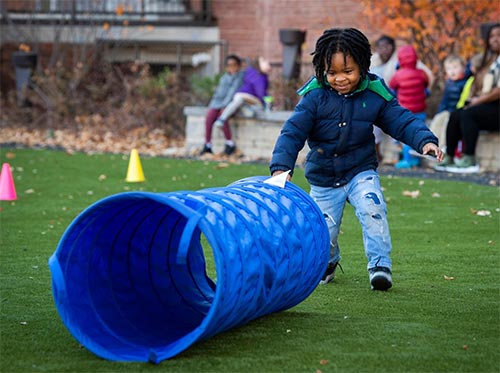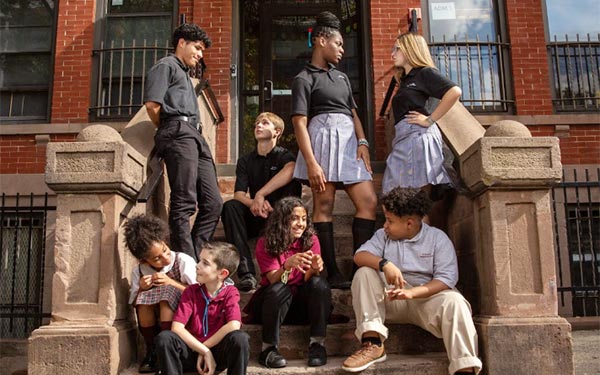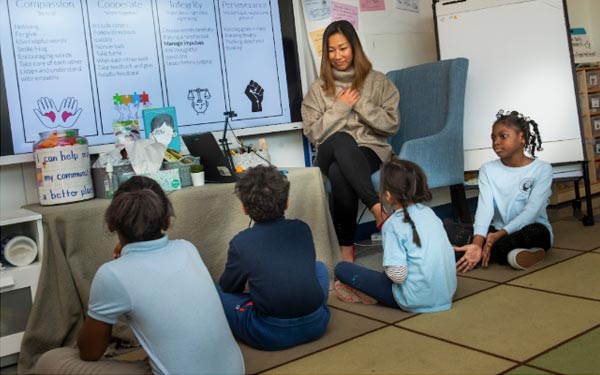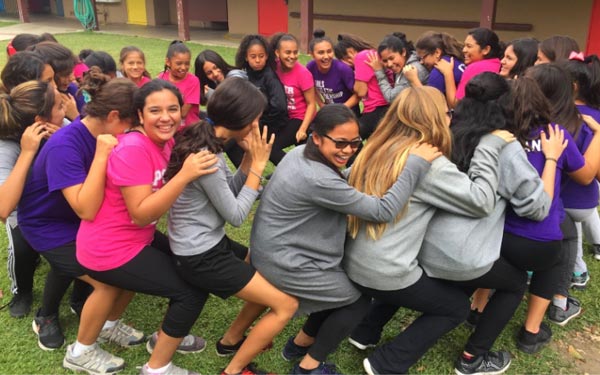
Too often, schools are focused narrowly on academic knowledge and skills, with learners engaging in experiences focused primarily on the cognitive dimension of learning. This is reflected in the activities and content learners engage with and the support they receive. As a result, learners’ emotional and physical selves are often neglected. While the cognitive and academic dimensions of learning remain critical, for all young people to truly thrive in and transform the world, school must nurture the whole child. This includes nurturing learners cognitively, physically, and emotionally, honoring the complex factors that support learning and development.

Having a whole-child focus is essential because learning and development is a complex process influenced not only by how we cognitively process information but also by how we feel, physically and emotionally. For example, destructive emotions stemming from loneliness, anxiety, or insecurity, as well as physical discomfort stemming from hunger or illness, can make it hard to focus on, manage, and make meaning of learning. Nurturing learners’ overall well-being helps buffer against this and places learners in a state conducive to deeper, more lasting learning. In addition, a whole-child focus builds the knowledge, skills, and mindsets critical for successfully navigating one’s path after high school, personal relations, and health. This is especially relevant due to the rise of mental health challenges and employers’ growing demand for advanced skills like creative thinking, resilience, flexibility, and agility.
This Leap Means…
- Learners engaging in activities that nurture their physical and mental health and well-being.
- Learners being supported to understand, process, and express their emotions in productive, personally affirming, and developmentally appropriate ways.
- Learners exploring and deepening their understanding of themselves including their bodies, needs, strengths, and interests.
- Learners practicing positive, productive individual mindsets such as curiosity and hope.
Despite common misconceptions, learning is a full-body experience…We learn through our emotions and feelings, through engagement with others, through bodily motions, by examining objects in our hand or ideas in our minds, and by moving through time and space.
Science of Learning & Development Alliance
Examples
Play Built Resilience from Intellectual Athlete (IA) (Grades 3–8)
IA teaches young people how to manage stress and build resilience through a fun play and sport framework centered on awareness of breath. In the IA Play Built Resilience model, young people learn and practice breathing techniques and mental performance skills during play, developing foundational skills that enhance their cognitive, physical, and emotional health and well-being.

St. Benedict’s Model from The Father Mark Payne Institute (Grades K–12)
St. Benedict’s model gives learners tremendous leadership opportunities and fosters a strong sense of community so that learners become responsible citizens eager to contribute to the community and the world. Acknowledging that educating the heart is just as important as educating the mind, the model provides a robust counseling program to support learners’ socio-emotional health.

Whole Child Model from Van Ness Elementary, a DCPS School (Grades PK–5)
The Whole Child Model integrates multiple tiers of support throughout the school day to build a safe and supportive school climate as well as the intrapersonal and interpersonal skills young children need to regulate their emotions, manage stress, and handle conflicts productively. Through the model’s components—CARE, Boost, and Family Circle—all learners receive Tier I support, families are empowered as valued partners in their child’s education, and learners who need more receive tailored support.

Whole-Bodied Education from Girls Athletic Leadership Schools (Grades 6–12)
Girls Athletic Leadership Schools’ Whole-Bodied Education model addresses female learners’ physical, emotional, and psychosocial needs so that they are empowered to be leaders of their own lives. With a focus on social-emotional learning, movement, and diversity within a single-gendered context, all learners experience a safe space in which to fully develop themselves.


